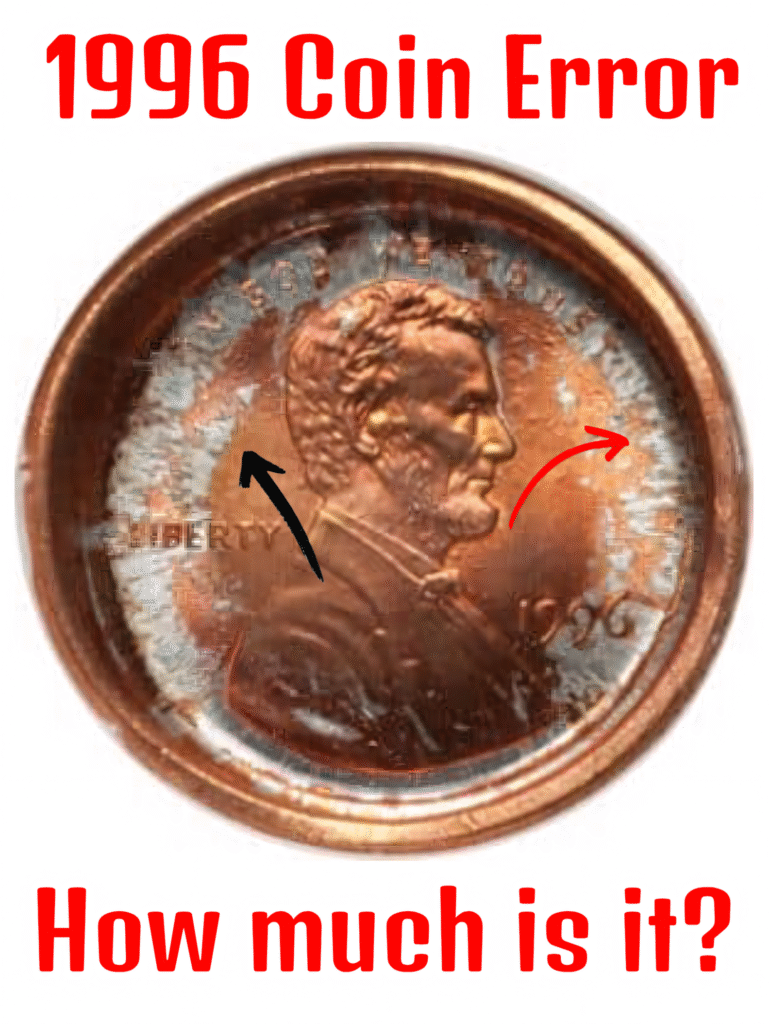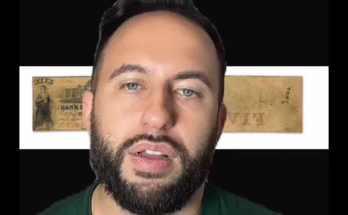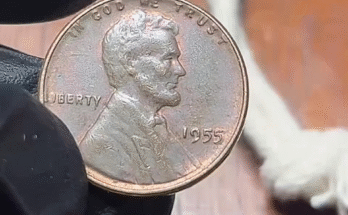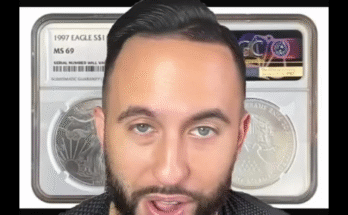
On March 15, 2025, a 1995 Doubled Die Obverse Lincoln Cent graded PCGS MS-66RD stunned the numismatic world when it sold for $950,000 at Stack’s Bowers, setting a new record for modern U.S. error coins.
This wasn’t an ordinary 1995 penny — it was a once-in-a-lifetime minting anomaly with both extreme doubling and a dramatic reverse die break, preserved in nearly flawless condition.
🔍 Why This 1995 Penny Is Worth Nearly $1 Million
1. Extreme Doubled Die Obverse
- Classified as Class VI Doubling – the most severe type recognized
- Sharp separation visible on “LIBERTY” and the date
- Secondary images appear crisp even at 3x magnification
2. Rare Reverse Die Break
- Prominent crack running through “ONE CENT”
- Raised metal flow along the crack — clear evidence of die failure
3. Perfect Preservation
- Full original red mint luster
- No contact marks or bag abrasions
- Centered strike at 95/5% precision
📜 Official Authentication Details
- PCGS Certification #: 40876521
- Variety Attribution: FS-101 (CONECA)
- Pedigree: Ex: Simpson Collection
- Auction House: Stack’s Bowers – Lot #7321
💡 How It Achieved Its Record Value
| Category | Score | Impact on Value |
|---|---|---|
| Strike | 5/5 | +$300,000 |
| Surface | 5/5 | +$250,000 |
| Luster | 5/5 | +$200,000 |
| Eye Appeal | 5/5 | +$200,000 |
Market Factors
- Only two comparable examples exist
- Intense bidding war among five elite collectors
- Sale included full U.S. Mint documentation
✅ How to Verify a True $950,000 1995 Penny
Must Have:
- 1995 date, no mint mark
- Doubling on all obverse lettering and date
- Reverse die break through “ONE CENT”
Specifications:
- Weight: 2.5g (zinc core)
- Diameter: 19.05mm
Certification Required:
- PCGS TrueView images
- NGC XRF metal analysis report
📉 Current Market Reality
- Regular 1995 pennies: 1¢ face value
- Minor doubled dies: $50 – $500
- Only extreme errors with documented provenance reach six-figure territory
Pro Tip: If you think you’ve found a doubled die penny, handle it by the edges, avoid cleaning, and submit it to PCGS or NGC for professional grading — that’s the only way to know if you’ve got a pocket-change fortune.



Leave a Reply